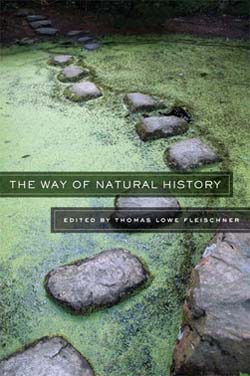Campus News
Writing instructor’s essay included in natural history anthology
An essay by Sarah Juniper Rabkin, a lecturer and researcher in the UC Santa Cruz Environmental Studies Department is included in “The Way of Natural History” (Trinity University Press, 2011), an anthology in which more than 20 writers argue that attention to nature is a key pathway to nurturing our humanity.

An essay by Sarah Juniper Rabkin, a lecturer and researcher in the UC Santa Cruz Environmental Studies Department is included in The Way of Natural History (Trinity University Press, 2011), an anthology in which more than 20 writers argue that attention to nature is a key pathway to nurturing our humanity.
The contributors are scientists, nature writers, poets, a Zen practitioner, a gardener, and even Richard Thompson, the guitarist and founder of Fairport Convention. In a piece less than a page long, David Foreman, widely credited with coining the term “Earth First!” and co-founding the organization that bears the name, writes about talking out loud in the wilderness, addressing flora and fauna alike.
The editor is Thomas Lowe Fleischner, a naturalist and conservation biologist who teaches in the interdisciplinary environmental studies program at Prescott College in Arizona.
Rabkin said Fleischner invited her to contribute to the collection after they initially met at a gathering of naturalist writers in Colorado several years ago. That meeting also led Fleischner to persuade her to join the board of the Natural History Network, where she served for two years.
In her essay “Eyes of the World,” Rabkin writes about how gazing at a fern in a college botany class opened her eyes to the value and power of nature studies. “Long belittled by academic scientists as a quaint, old-fashioned diversion,” Rabkin writes, “nature study should occupy the core of any twenty-first century school curriculum.”
She writes about her UCSC students as they discover compost, quotes retired UCSC professor Todd Newberry, and also Grateful Dead lyricist Robert Hunter’s lyrics “Wake up to find out that you are the eyes of the world.”
“We are the eyes of the world,” Rabkin writes. “And we urgently need to see anew.”
Rabkin taught in UCSC’s writing program for 22 years before retiring in 2007. She has since returned as a wrting instructor in environmental studies. She will be offering a course in both winter and spring quarters.